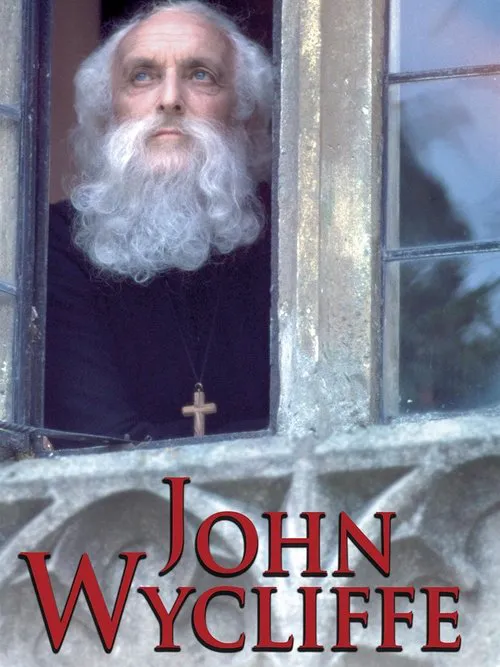John Wycliffe: The Morning Star

Plot
In the midst of the 14th century, a period beset by great change, upheaval, and transformation, one man stood out among his peers as a champion of the downtrodden and an advocate for the rights of the common people. John Wycliffe, a renowned scholar, theologian, and philosopher, had taken up residence at Oxford University, a hotbed of intellectual ferment and a place where some of the most influential minds of the era congregated. As a professor of divinity, Wycliffe's teachings were not only intellectually stimulating but also deeply unsettling to some of his contemporaries. His unwavering commitment to the principles of scripture, reason, and compassion had led him to question and challenge the authority of the Catholic Church, with its emphasis on the primacy of Rome and the absolute power of its pontiff. In Wycliffe's eyes, the Church had become corrupt, more concerned with maintaining its own wealth and influence than with tending to the spiritual and material needs of its flock. One of Wycliffe's greatest contributions to Western scholarship was his translation of the Bible into vernacular English. Until this time, the Latin Vulgate, which had been the primary source of scripture for centuries, was inaccessible to the vast majority of the population due to its arcane language and unfamiliarity with its complex grammar and syntax. By rendering the sacred text into a language that ordinary people could read, understand, and connect with, Wycliffe had opened the door to spiritual growth and self-discovery for countless individuals. As Wycliffe's reputation as a scholar, theologian, and advocate for reform grew, so too did his notoriety among those who opposed him. The Church saw him as a threat, a heretic who sought to undermine its authority and legitimacy. Wycliffe's defense of England's autonomy against the claims of the Roman Church, as well as his efforts to reduce poverty and promote social justice, further antagonized his critics. The film John Wycliffe: The Morning Star chronicles the trials and tribulations of this remarkable individual as he navigated the treacherous landscape of 14th-century politics, theology, and society. From the cloistered corridors of Oxford University, where he debated and discoursed with his peers, to the bustling marketplaces and streets of London, where he ministered to the poor and preached against the excesses of the Church, Wycliffe's life was a testament to the power of conviction and the indomitable will to do what is right in the face of overwhelming opposition. Throughout the story, Wycliffe's relationships with his contemporaries serve to underscore his intellectual and spiritual stature. His debates with fellow scholars, such as Thomas Bradwardine, whose philosophical and theological perspectives frequently clashed with Wycliffe's, provide insight into the mind-numbing intricacies of Scholasticism, the dominant intellectual paradigm of the time. In contrast, Wycliffe's encounters with the common people reveal a deep compassion and empathy for those who had been marginalized and oppressed by the Church's hierarchical and autocratic structures. As he traveled throughout the land, preaching and teaching, Wycliffe encountered individuals who had been forced to live on the periphery of society: the widows, the orphans, the poor, the sick, and the downtrodden. His ministry to these individuals not only offered them solace and hope but also served as a clarion call to the Church to reexamine its priorities and to recommit itself to the service of all people, rather than the pursuit of wealth and power. One of Wycliffe's closest allies was a group of like-minded individuals, including John of Buckingham, who, like Wycliffe, were passionate about promoting reform and challenging the status quo. These individuals, whose intellectual pursuits and spiritual aspirations resonated with Wycliffe's own, formed a network of scholars and activists who would go on to shape the course of Western history. The story of John Wycliffe's life, as told in the film, is a compelling testament to the enduring power of faith, reason, and compassion in shaping the world around us. It reminds us that even in the most challenging and turbulent of times, when the dominant forces of society seem bent on upholding the power of the few over the many, there are always individuals who embody the ideals of justice, equality, and human dignity. John Wycliffe's remarkable story inspires us to stand with those who suffer, to speak truth to those in power, and to strive for a world where the sacred and the secular, the individual and the community, are intertwined in a delicate yet profound dance of mutual respect and care.
Reviews
Recommendations



